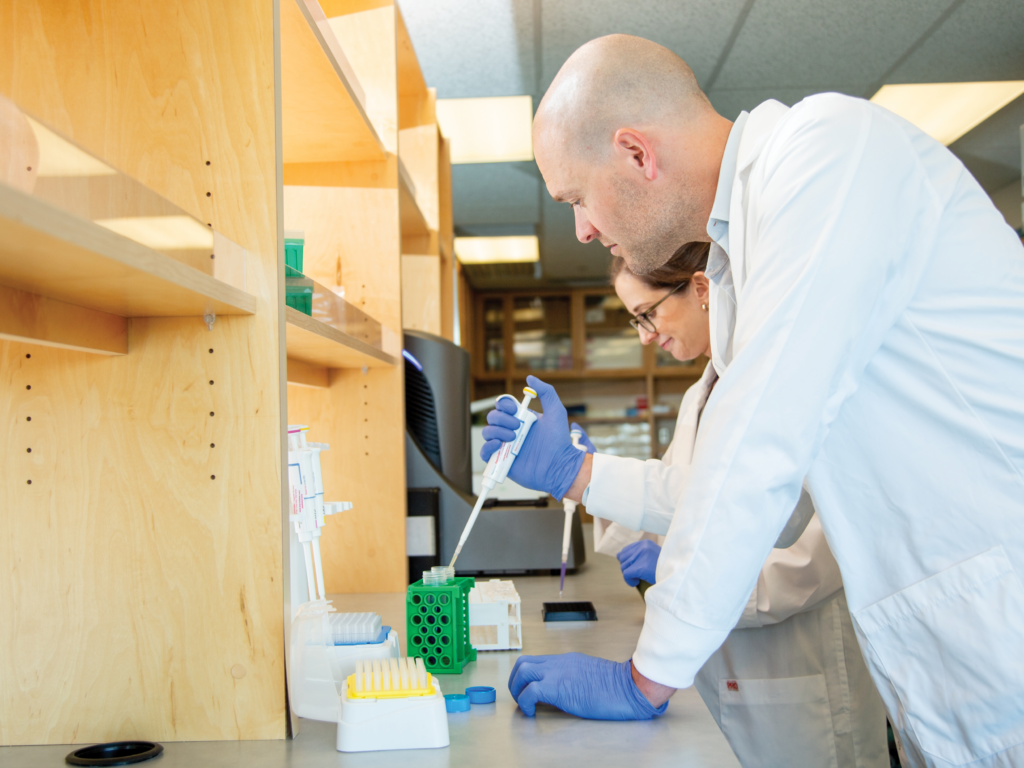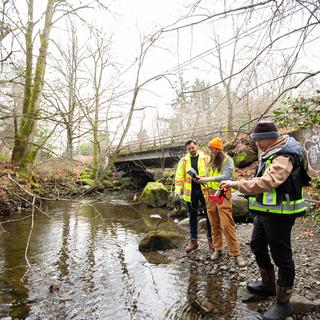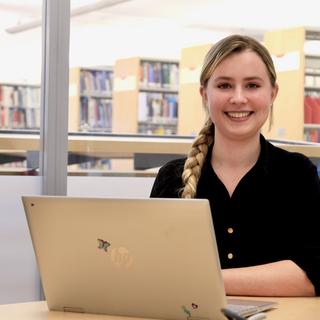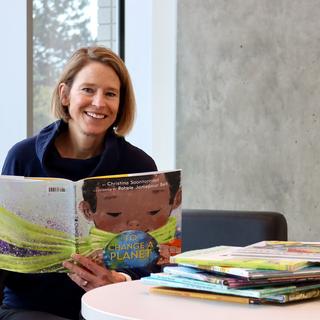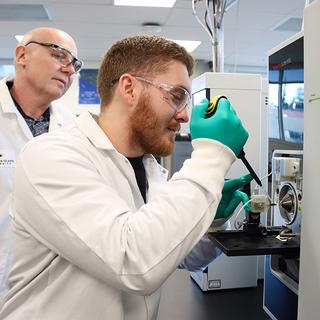From shellfish biotoxins, to 3,000-year-old beer, to conspicuous consumption research, Vancouver Island University experts had a busy year in the media. Here are the top stories of 2024!
#1: When teasing goes too far
What should you do when a joke hurts your feelings? VIU Psychology Professor Dr. Cameron Gordon offered advice in a New York Times article about teasing – and when it goes too far. Read more.
#2: How to make 3,000-year-old beer
Beer can tell us a lot about the evolution of civilization. Anthropology Professor Dr. Marie Hopwood shared her efforts to reconnect with bygone civilizations by reviving their potent potables with the New York Times. Read more.
#3: Conspicuous consumption’s evolutionary roots
It’s sometimes said that people buy products they don't really need, with money they don’t really have, to impress people they don’t really like. This behaviour is known as conspicuous consumption because these consumers want others to see them with the product. Until now, it has been assumed that conspicuous consumption is irrational and the result of marketing and advertising. New research led by Athabasca University’s Dr. Jim Swaffield and VIU’s Dr. Jesus Sierra Jimenez from Vancouver Island University challenges these commonly held assumptions. This drive to use products as a means of communication is triggered by a gene-environment interaction, they say. Read more.
#4: Brain injury in domestic violence survivors
Improving the detection of brain injury in domestic violence survivors is the focus of VIU Researcher and Neuroscientist Dr. Sandy Shultz’s work. Last summer, he received a Brain Canada grant of $400,000 to support this research. Read more.
#5: Food security research
An increasing number of students are being forced to choose between achieving their educational goals and basic living essentials due to the rising costs of living. A new initiative funded through the generosity of Embark, an education savings and planning company, aims to address student hunger issues for VIU students. Read more.
#6: Rebounding marmot populations
The critically endangered Vancouver Island marmot species counted a record 86 wild-born pups last summer. Biology Professor Dr. Jamie Gorrell, who has been researching the population and strategies to help them recover, spoke to CBC about this development. Read more.
#7: Changing political leanings
CBC News wrote about a poll suggesting that Vancouver Islanders, who are often NDP supporters, could be changing their preferences in the next federal election. Political Science Professor Dr. Jocelyne Praud shared her thoughts with CBC. Read more.
#8: Biodiversity conservation
Only about three per cent of the land in the Mount Arrowsmith Biosphere Region (MABR) is protected and private land ownership is the biggest obstacle. VIU’s Mount Arrowsmith Biosphere Region Research Institute received funding from Environment and Climate Change Canada’s Nature Legacy Program to investigate ways to protect ecosystems. The research institute, which is in its fourth year of the project, has received a commitment of approximately $1.25 million. Read more.
#9: Putting a human face to the war experience
Researchers with the University of Toronto worked to identify the species of the flower a soldier pressed into the last letter he sent home before going missing in the Battle of the Somme. Dr. Stephen Davies, Director of the Canadian Letters and Images Project, told CBC that flowers are a recurring motif in soldiers’ letters home. Read more.
#10: X and Artificial Intelligence
X is the latest social media site letting third parties use your data to train AI models. Social media platforms are reportedly signing content licensing deals with AI giants, bringing in a new stream of revenue amid tough competition for advertising dollars, Dr. Ajay Shrestha, a VIU Computer Science Professor, told CBC. Read more.
#11: Student breaks viral election night story
A journalism course project led to Alyona Latsinnik breaking a viral election story that exposed a Conservative candidate’s racist remarks about Indigenous people. She spoke with CBC about the story. Read more.
#12: The power of oysters
CBC wrote about how millions of oysters could protect coastlines against climate change if oyster reefs were restored, as they can reduce the blow of waves on shorelines. Dr. Timothy Green, VIU’s Canada Research Chair in Shellfish Genomics, explains how to re-create an oyster reef. Read more.
#13: Alternative approval process angst
Dr. Michael MacKenzie, VIU’s Jarislowsky Chair in Trust and Political Leadership, has had a busy year commenting on various political issues. One of these was the City of Nanaimo’s plan to borrow $90 million for a new public works yard. Read more.
#14: Shaping BC’s Environmental Future
From teaching children about climate change, to AI and the privacy of younger users, to sustainable tourism and saving an endangered flower, VIU experts participated in Global/CKNW’s Shaping BC’s Environmental Future series. Listen and watch the articles.
#15: Eco-friendly research
Choosing eco-friendly boat cleaners just got easier thanks to VIU researcher’s product database. Chemistry Professor Dr. Alexandra Weissfloch spoke with the National Observer about the research. Read more.
#16: Testing shellfish for toxins
The Canadian Food Inspection Agency and Vancouver Island University researchers partnered this year to improve testing for biotoxins in seafood and ultimately improve food security for remote and Indigenous communities along the coast. The Tyee picked up the story. Read more.
#17: “Rewriting my colonial script”
Dr. Laura Ann Cranmer was six years old when she contracted tuberculosis and was sent to the Nanaimo Indian Hospital. Confined there for three years, she recalls a sense of deep loneliness and confusion about why she had been sent there, so far from home. After COVID-19, the retired Indigenous/Xwulmuxw Studies Professor resumed her writing, which became the play Scenes from the Nanaimo Indian Hospital: Reawakening Hul’q’umin’um’, Nuu-chah-nulth and Kwak’wala Languages. She spoke with The Discourse about it. Read more.
#18: Tire toxin research
VIU researchers are investigating the origin of a toxic tire chemical that can kill salmon when it runs off roadways and into waterways during heavy rain events. The Discourse attended a conference hosted by the Applied Environmental Research Laboratories on the subject last spring. Read more.
#19: Maintaining mobility
VIU researcher Dr. Michael Asmussen is studying the structures of the human foot. His goal is to translate his findings into health-care solutions aimed at assessing and improving stabilization of the foot and ankle and a person’s ability to safely walk and run throughout their whole life. Read more.
#20: Tiny homes help housing shortage
Carpentry students at VIU Cowichan gained real-world experience and provided a home in the process this year. The tiny home was built at the Cowichan Trades Centre and delivered to a property in Saanich. Program Instructor Andrew Macleod and student Emily Behm spoke to CBC On the Island’s Gregor Craigie about the project. Listen to the interview.

